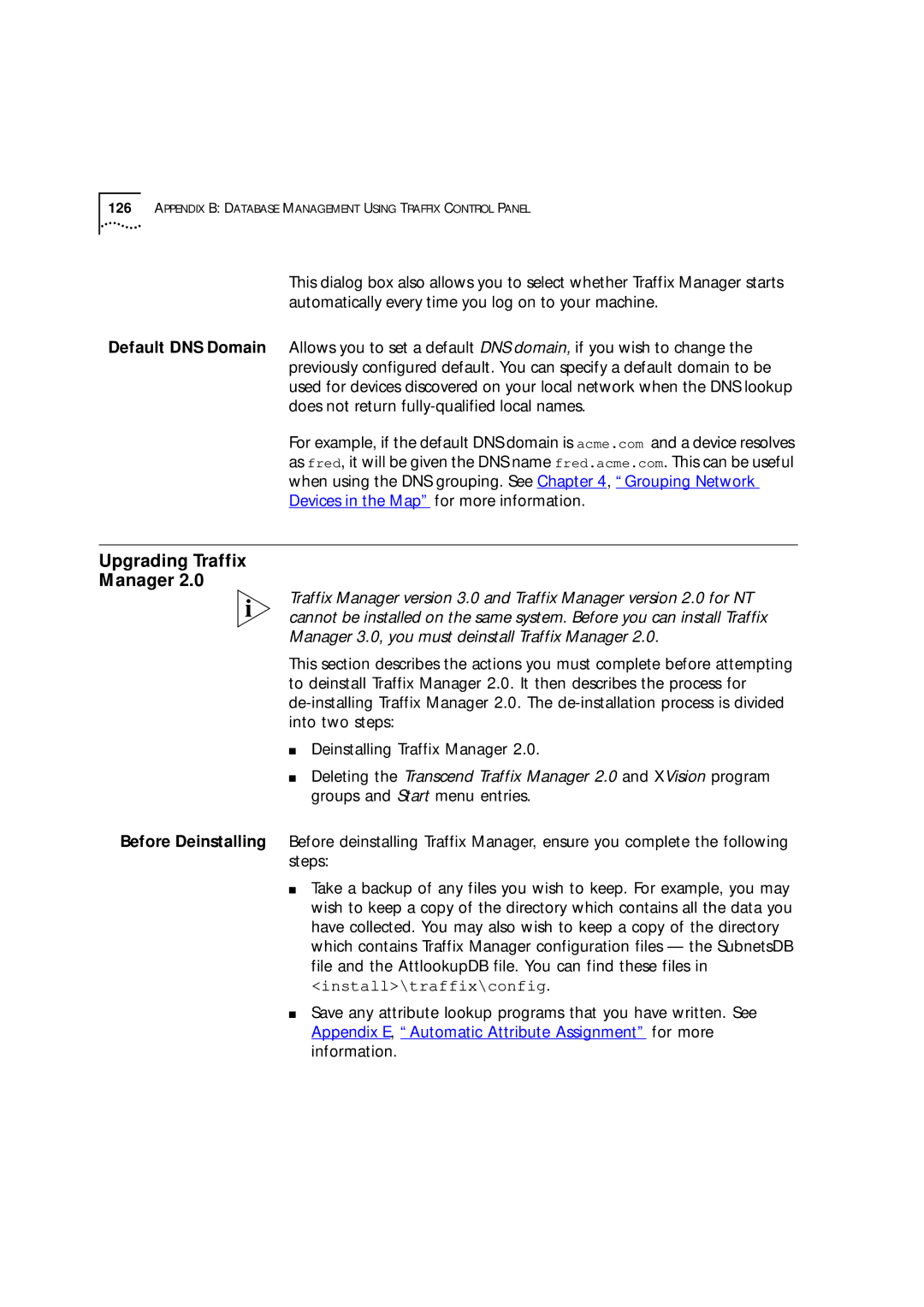
126APPENDIX B: DATABASE MANAGEMENT USING TRAFFIX CONTROL PANEL
This dialog box also allows you to select whether Traffix Manager starts automatically every time you log on to your machine.
Default DNS Domain Allows you to set a default DNS domain, if you wish to change the previously configured default. You can specify a default domain to be used for devices discovered on your local network when the DNS lookup does not return
For example, if the default DNS domain is acme.com and a device resolves as fred, it will be given the DNS name fred.acme.com. This can be useful when using the DNS grouping. See Chapter 4, “Grouping Network Devices in the Map” for more information.
Upgrading Traffix
Manager 2.0
Traffix Manager version 3.0 and Traffix Manager version 2.0 for NT cannot be installed on the same system. Before you can install Traffix Manager 3.0, you must deinstall Traffix Manager 2.0.
This section describes the actions you must complete before attempting to deinstall Traffix Manager 2.0. It then describes the process for
■Deinstalling Traffix Manager 2.0.
■Deleting the Transcend Traffix Manager 2.0 and XVision program groups and Start menu entries.
Before Deinstalling Before deinstalling Traffix Manager, ensure you complete the following steps:
■Take a backup of any files you wish to keep. For example, you may wish to keep a copy of the directory which contains all the data you have collected. You may also wish to keep a copy of the directory which contains Traffix Manager configuration files — the SubnetsDB file and the AttlookupDB file. You can find these files in
<install>\traffix\config.
■Save any attribute lookup programs that you have written. See Appendix E, “Automatic Attribute Assignment” for more information.
